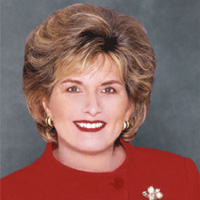
CAN
TECHIES BECOME GOOD LEADERS?
"In 2007, the co-founder
and CEO of Facebook, Mark Zuckerberg, knew that he needed help. His
social-network site was growing fast, but at the age of twenty-three, he felt
ill-equipped to run it." (Quoted from the article "A Woman's
Place" in The New
Yorker magazine July 11, 2011). That is why he aggressively courted
and then hired Sheryl Sandberg away from Google to become his company's COO. In
the technical sector there are similar stories of 'techies' who have started a
company and then realized (or were told by their investors or Boards) that they
needed to hire a more seasoned executive to take the company from its
entrepreneurial stage to a more professionally managed stage-Think Apple and
Google, among others.
By most definitions,
Zuckerberg would not consider himself to be a good manager: "There are
people who are really good managers, people who can manage a big organization.
And then there are people who are very analytical or focused on strategy...I would
put myself much more in the latter camp." He goes on to say that he is
grateful that Sandberg "handles things I don't want to, such as
advertising strategy, hiring and firing, and dealing with political
issues." (from The
New Yorker article cited above).
So, even though Zuckerberg
acknowledges that he is not a particularly good manager, does that mean he is
not an effective leader? I think not.
What we know about
leadership is that the most effective leaders create the vision and develop followership.
They see the future, develop strategies for making the dream come alive and
motivate others to follow them on the journey. By that definition alone, there
is no doubt that Zuckerberg, certainly a 'techie', is providing leadership to
one of the fastest growing companies in the world.
"Techies" are not
confined to the technology industry. You can find techies in any industry.
Techies are those individuals who have been trained in a specific expertise and
whose career progress largely has been based on their functional knowledge and
expertise. Highly successful salespeople could be considered techies, along
with research scientists, fashion designers, engineers, accountants or lawyers.
In a recent program I did for
women lawyers on leadership, one woman partner came up to me afterwards and
said "You know, until today I always thought of myself as just a lawyer.
You've opened my eyes to the fact that my associates need me to be a leader for
them and my clients expect, not just my expertise-but my leadership, as
well". Techies often think that "if I'm the smartest person in the
room I win"; but, what they don't realize is that they have to
continuously "sell" their expertise and influence others to heed
their advice.
I often find myself reminding
my techie audiences or coaching clients that if anyone is watching them for
direction, evaluating them as a 'role model', and wanting feedback and
recognition from them, then they are in a 'leadership role', like it or not.
And others expect them to perform this leadership role effectively.
So to answer the question
posed in the headline: Can techies become good leaders? The answer is a
resounding 'yes'. The harder question is how do you develop techies into good
leaders?
What follows are key insights
and lessons that have emerged from many years of experience in training and
coaching techies to become effective leaders.
First, you need to create a culture that delivers the
message "If you want a larger management role in this organization then
you must not only provide technical expertise, you also must demonstrate your
ability to lead others." This message needs to come from
the top. It does not mean de-valuing people's technical expertise, nor does it
mean that all techies want to or are capable of becoming leaders. But if you
want a senior level career path then you must commit to leadership.
Second, it is then critical to
define the strategic
leadership competencies that the organization requires. A young
company that is focused on managing its growth has a different set of
leadership priorities than one which is struggling with competitive and
financial pressures. Senior management should collectively define the business
strategies required over a future 1-2 year period and then prioritize the
leadership skills and practices that will be required by both individuals and
leadership teams. One company we work with is moving from publishing
exclusively print magazines to one that provides integrated solutions that
offer a combination of print and digital media. They identified that their
leaders need to proactively demonstrate leadership abilities in such areas as:
Innovation, Strategic, Persuasive, and Communication.
Third, provide data-based insights about
the current leadership competencies of your high potential leaders.
This can be done through interviews, but techies love data-so, if possible, use
a 360 leadership assessment that specifically examines the leadership role
being performed (we use the Management Research Group's Leadership 360 survey).
This can then highlight each individual's leadership strengths and areas for
development, giving priority to those leadership requirements that are critical
for the business. I doubt that Zuckerberg ever took a 360 survey; however, we
do know that there were several people who had suggested that his strengths
were not in operational management. And to his credit, he accepted the feedback
and acknowledged that there were some leadership roles he should not perform.
Enter Sheryl Sandberg.
Fourth, we all can't be good
at everything and the best organizations are those that seek to put people in
roles that leverage their 'unique abilities'. However, to help techies grow
into their leadership role you may need to provide internal or external leadership development support,
such as coaching, mentoring or offering attendance at programs that help
techies to develop their leadership skills (e.g. we recommend
The Leadership Development Institute at Eckerd College, for
example.) This is tricky because the 'smartest people in the room'
don't often respond to programs or people who they perceive to be irrelevant. A
new program that is having some appeal among techies is called "peer
coaching". This is a coaching model where individuals are matched to one
or more of their peers based on a model of complementary competencies (i.e. if
I am skilled at making technical presentations understandable to wide
audiences, but I'm terrible at social interpersonal interactions, I may be
matched to someone who is good at the latter and terrible at the former.) The
objective is for us to talk about our relative strengths and receive coaching
from each other, with no fear of our discussions appearing on a performance
review.
Fifth, encourage your techies to take the
focus off of showing off their own expertise and pay more attention to the
development of their people. Techies usually have a history of
spending their time on maintaining their own personal credibility and currency.
However, the number one reason why people leave for new jobs is that they do
not believe their managers care about their career development or progression
and don't take the time to recognize their unique contributions. If you enable
your 'creative geniuses' to drive people out of the division or the company, you
are sending mixed messages to the other team members about what you really
value. As techies move into leadership roles there should be an increasing
emphasis on how well they attract, develop and retain the talent they need to
grow the organization.
We have all been witness to
brilliant people who have been able to move into positions of increasingly
greater influence. Most of them would admit that, as their organizations grew
and evolved into different phases, they, too, had to grow and change on their
leadership journey. Those who are successful acknowledge, as a mentor of mine
once said: "A finished leader, is a finished leader."
If you would like to
learn more about EquiPro's leadership, team development and executive coaching
programs, please contact EquiPro International at 212-421-1645 in New York or
813-415-3664 in Tampa.







